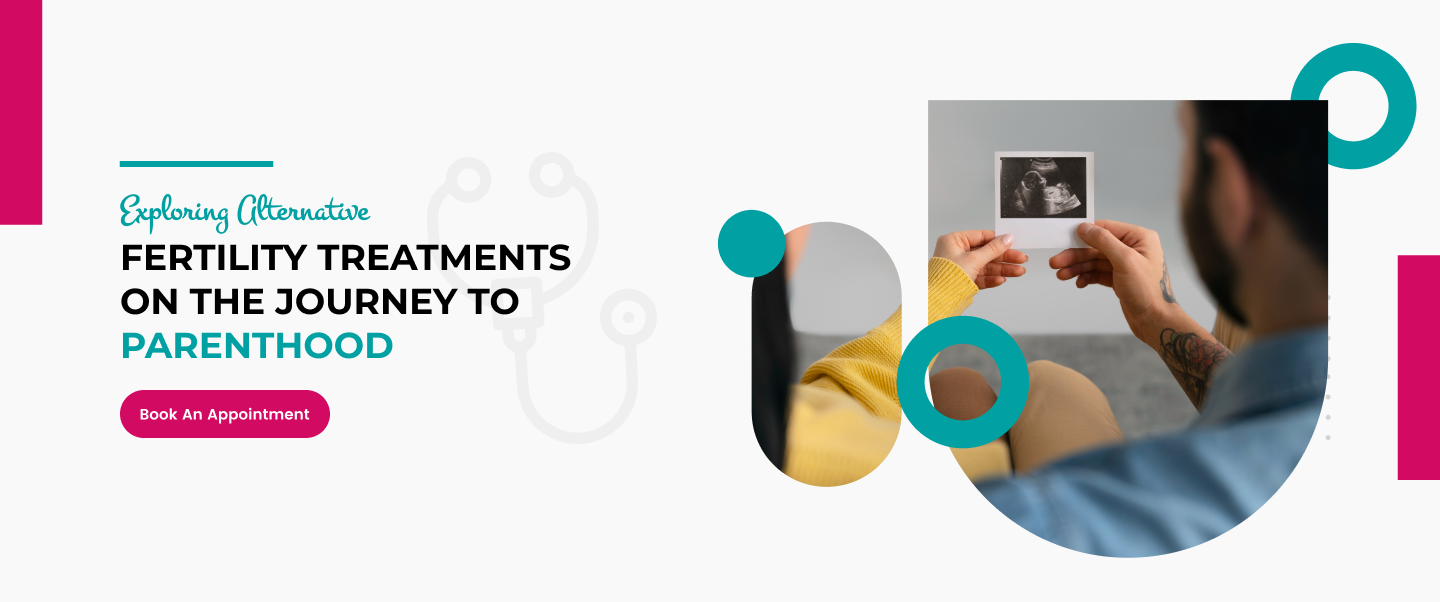Home / Other Fertility Treatments
Fertility Treatments Navigating the Path to Parenthood
Becoming a parent is a cherished dream, a journey filled with anticipation and hope. However, for some couples, the path to parenthood may encounter unexpected challenges. In such moments, various other male fertility treatments serve as beacons of hope, offering the possibility of overcoming these hurdles.

Understanding the Significance
Other male fertility treatments encompass a range of interventions designed to address specific conditions or factors that may hinder fertility. These treatments provide tailored solutions for couples striving to achieve their dream of parenthood.
Exploring Other Treatments
Let’s delve into some of the primary treatments that fall under the category of “Other Fertility Treatments”:
- Unexplained Fertility
Unexplained infertility is a frustrating condition in which the cause of fertility problems cannot be identified through standard tests. This mysterious challenge affects both men and women, leaving couples perplexed about why conception remains elusive. It can take a considerable emotional toll, leading individuals and couples to seek specialized care. Read More
- Thyroid Disorders
Thyroid disorders, such as hypothyroidism (underactive thyroid) and hyperthyroidism (overactive thyroid), can disrupt hormonal balance. In men, these imbalances can affect sperm production and overall fertility. The relationship between thyroid health and fertility is well-established, and medical treatments are available to address these issues.
- Vitamin D Deficiency
Vitamin D plays a crucial role in reproductive health, and its deficiency can impair sperm quality and male fertility. Maintaining adequate vitamin D levels is essential for both men and women, as its impact on fertility is significant. Supplementation and dietary adjustments can help rectify deficiencies.
- Hormone Level Imbalance
Hormone imbalances, particularly low testosterone levels, can have a significant impact on sperm production and fertility in men. Symptoms of hormone imbalances should be monitored, as they can affect reproductive health. Treatment options are available to restore hormonal balance.
- Obesity
Obesity is a widespread concern that can lead to hormonal imbalances and lower sperm quality in men. Excess weight has a direct impact on fertility and can hinder conception. Adopting a healthy lifestyle, including diet and exercise, is vital for improving fertility outcomes.
- Autoimmune Disease
Autoimmune diseases can disrupt the body’s normal functions, including fertility. These conditions affect both men and women, causing difficulties in achieving pregnancy. Managing autoimmune diseases through medical interventions is crucial for those aiming to overcome fertility challenges.
- Genetic Disorders
Genetic disorders can result in sperm abnormalities, making it challenging for men to father children naturally. Genetics play a significant role in fertility issues, and couples facing genetic-related challenges have options such as assisted reproductive techniques to consider.
In this journey to parenthood, it’s essential to explore all aspects of fertility, including the often-overlooked issues. By doing so, you can better understand your options and take proactive steps towards achieving your dream of starting a family.
For personalized guidance and expert consultation on fertility treatments, trust Vijay Sristi. Our dedicated team is committed to accompanying you on your path to parenthood.
The Role of Early Intervention
Timely detection and intervention are vital in optimizing the success of these treatments. Early identification of specific fertility challenges allows for the implementation of tailored strategies and increases the chances of achieving a successful pregnancy.
Considering Other Fertility Treatments

Before embarking on these treatments, it’s crucial to consider several factors:
- Discomfort & Swelling:
A comprehensive diagnostic evaluation is essential to identify the underlying cause of male infertility and determine the most suitable treatment approach.
- Financial Planning:
Assessing the financial aspects of these treatments and potential outcomes is essential to make informed decisions.
- Emotional and Psychological Support:
Coping with fertility challenges can be emotionally taxing. Seeking professional or personal support is invaluable during this journey.
Frequently Asked Questions :

1. How does stress affect fertility?
Stress can negatively impact fertility in both men and women by disrupting hormonal balance and reducing the chances of conception.
2. Are lifestyle changes effective in improving fertility?
Yes, adopting a healthy lifestyle, including a balanced diet and regular exercise, can significantly improve fertility outcomes for both men and women.
3. What is the role of medical interventions in fertility treatment?
Medical interventions like IVF and IUI offer hope to couples facing fertility challenges by assisting in conception.
4. How can environmental toxins affect fertility?
Exposure to environmental toxins, such as endocrine-disrupting chemicals, can have long-lasting effects on fertility by interfering with hormonal balance and reproductive function.


